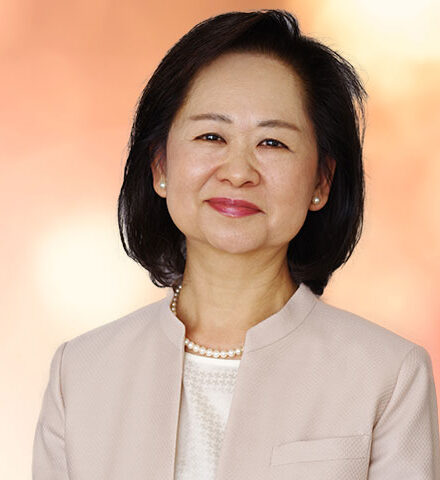The Three Thoughts Behind the Book “How to Cultivate a Flexible Mind and Career”
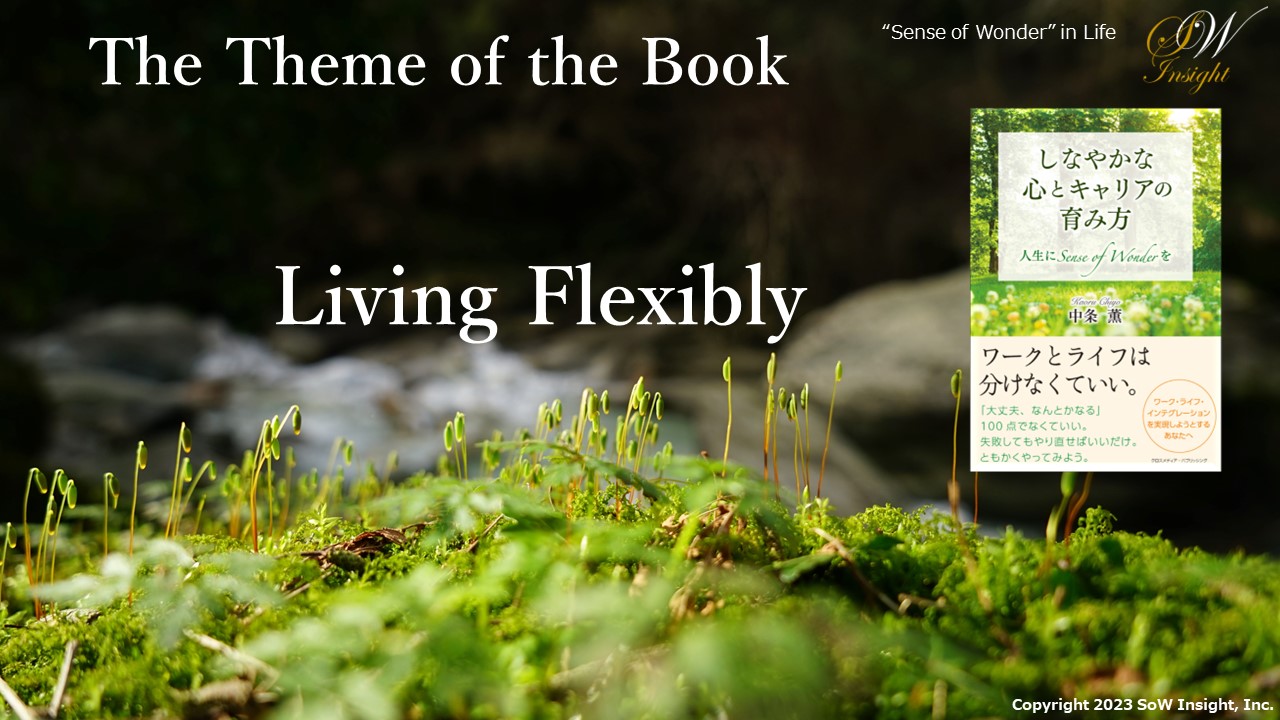
On January 6th of this year, I published “How to Cultivate a Flexible Mind and Career,” and since then, I have had more opportunities to talk about the contents of the book. Today, I would like to talk about the three thoughts behind the book.
The theme of the book is “Living Flexibly.”
I believe that in this uncertain and unpredictable era without clear answers, it is essential for each of us to have a “flexible mind” to live our lives in a way that is true to ourselves. With that in mind, I have shared my thoughts by incorporating three key ideas throughout the book.
The first is Thinking based on neuropsychology.
I became aware of the importance of neuropsychology when I was involved in AI business at Fujitsu. As you may know, AI utilizes the structure of human nerve cells. At that time, Fujitsu had been promoting the message of “an era in which humans and AI cooperate.” However, as I witnessed the progress of AI, I had a big question in my mind.
Even though it is said that “humans and AI will live in cooperation from now on”, are humans understanding and acting on their own brains and psychology enough to truly cooperate with AI?
Feeling a sense of crisis, I started to study neuropsychology called NLP, which is referred to as the “user manual for the brain” in the United States.
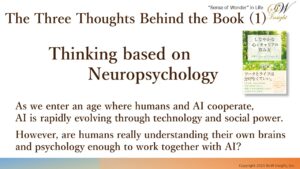
The WBC held last month caused a sensation all over the world. When I heard the words that the most attention-grabbing player, Otani, uttered as he prepared for the final match, “Let’s stop admiring them,” and repeatedly said “enjoy,” I strongly felt that this person understands how to handle his brain and psychology well. I think this is true in any field, but ultimately, what determines the outcome of the game is not ability but how to use the brain and psychology.
For example, enjoy. Human instincts seek safety and security to increase the chances of survival. The brain is the same way. Japanese people tend to feel that persevering through tough times is a virtue, but actually, working hard while feeling that things are difficult is an inefficient way to do things. The trick to making the brain work at a high level is to deliberately link it with pleasure and excitement, even in the same event.
The second one is Work-Life Integration.
This is a thought that I arrived at through my own experiences of balancing work and raising children, as well as observing people who are thriving in their work in Silicon Valley. I believe that the ideas and ways of thinking that come from a fulfilling life can improve the quality of life including work, and increase productivity and creativity. That is the value of Work-Life Integration.
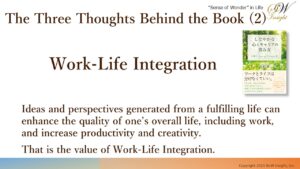
It is said that creativity comes from connecting things. Regardless of any business, ultimately it is connected to each individual’s life. I think that connecting life and work, and having an interest and curiosity about the current situation, can create new creativity in both work and life.
I have an American couple who I met in Silicon Valley and still have a close relationship. The wife has started an NPO and is involved in various activities, while the husband is the CEO of a major US company and was selected as CNN Business’s CEO of the Year last year, both doing very creative work. On the other hand, for example, when their children were young, the husband made sure to come home early for their baseball games and valued their family life very much. Seeing their enjoyable lifestyle while doing creative work up close was also a trigger for me to realize the power of Work-Life Integration.
The third thing is “Sense of Wonder” in life.
Sense of Wonder refers to the sensitivity to the mystery and wonder of the world, and it is the origin of the name of my company, “SoW Insight, Inc.” At the same time, it is also the title of the last book left by Rachel Carson, an American biologist who made a significant contribution to environmental issues.
I believe that this sensitivity is one of the things that people need to keep throughout their lives. This is because the sensitivity to feel nature, aesthetic sense, and curiosity that comes from the Sense of Wonder will be the source of living a rich life as a human being in the age of advancing digitalization.
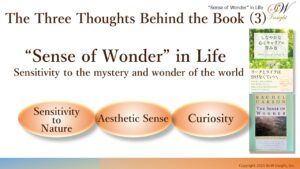
As you may also feel, generative AI, represented by ChatGPT, has begun to cause a shocking change in society. In a few years, the way of working and people’s roles will change significantly. I have also started using ChatGPT and it has already become an indispensable partner in my work. I believe that to enhance competitiveness, organizations and companies need to have the ability to make good use of generative AI.
That is why I think there are two things that people will need in the future.
One is the ability to judge the reliability of the information generated by AI.
It is important to cultivate the ability to judge whether seemingly logical information generated by AI is truly correct, whether it contains biases, and whether it poses ethical issues.
The second is creativity that is not bound by existing information.
As AI presents a comprehensive way of thinking based on massive amounts of data, imagination and creativity that are not bound by it will become increasingly important for us.
I think that one’s unique sensitivity, aesthetic sense, and curiosity will be the foundation for these abilities.
From such thoughts, I have shown in my book my own ideas and practical methods for living flexibly and creating a fulfilling career.
“How to Cultivate a Flexible Mind and Career”
(CrossMedia Publishing, January 2023)
https://www.amazon.co.jp/dp/4295407828/
kaoru.chujo@sowinsight.com (Kaoru Chujo)




